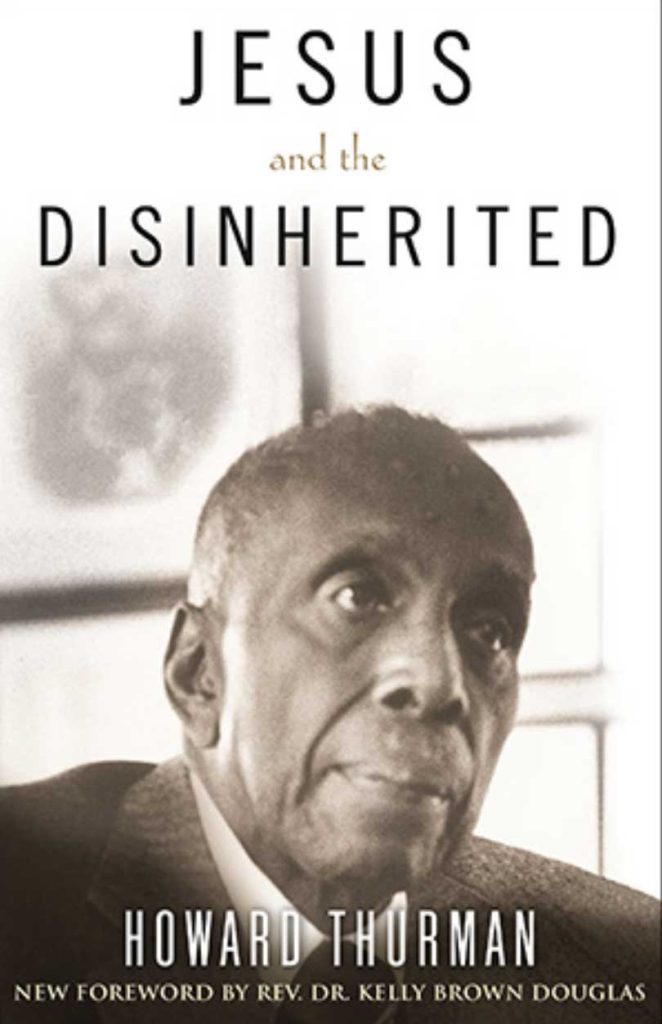by Howard Thurman
–
Howard Thurman’s words stand in the background of what Martin Luther King Jr., proclaimed about racial and economic relationships. The civil rights leader is said to have carried a copy of Jesus and the Disinherited in his briefcase as he traveled.
First published in 1949, Thurman’s book landed in the public just as the Civil Rights Movement stood at the threshold of moving from the courts and into mainstream consciousness.
In Jesus and the Disinherited, Thurman places Jesus alongside all others in history who stood outside political and economic power structures.
The book’s first sentence introduces two key phrases for the author. “The significance of the religion of Jesus to people who stand with their backs against the wall has always seemed to me to be crucial” (xxvii).
The “religion of Jesus” stands out in contrast to religion of Christianity. And “people who stand with their backs against the wall” is Thurman’s phrase for countless souls who have struggled to survive.
And Jesus was one of those souls. Thurman says three things about Jesus:
- “We begin with the simple historical fact that Jesus was a Jew” (5).
- “The second important fact … is that Jesus was a poor Jew. … [I]n his poverty he was more truly Son of man than he would have been if the incident of family or birth had made him a rich son of Israel” (6-7).
- “The third fact is that Jesus was a member of a minority group in the midst of a larger dominant and controlling group” (7).
The “religion of Jesus” is one that arose out of his own experience of being among the disinherited.
Thurman notes that Jesus’ social experience does not explain everything about Jesus; it is, however, a significant component. And part of the good news for people today whose backs are against the wall is that Jesus speaks from their perspective.
Thurman peels back layers in the challenges facing those struggling to survive. As a Black man growing up in the early 20th century, the author’s ministry was shaped by that experience, but Jesus is always at the center of Thurman’s writing.
“The basic fact is that Christianity as it was born in the mind of this Jewish teacher and thinker appears as a technique of survival for the oppressed. … Wherever his spirit appears, the oppressed gather fresh courage; for he announced the good news that fear, hypocrisy, and hatred, the three hounds of hell that track the trail of the disinherited, need have no dominion over them” (19).
Thurman also offers practical guidance for the disinherited, and he does so with an understanding that the same Spirit that moved Jesus moves still.
Finally, he notes that both “the privileged and underprivileged alike, if the individual puts at the disposal of the Spirit the needful dedication and discipline, he can live effectively in the chaos of the present the high destiny of a son of God” (98-99).
Ferrell Foster is a retired editor and ethics/justice director who attends First United Methodist Church in Riverton, Ill.

